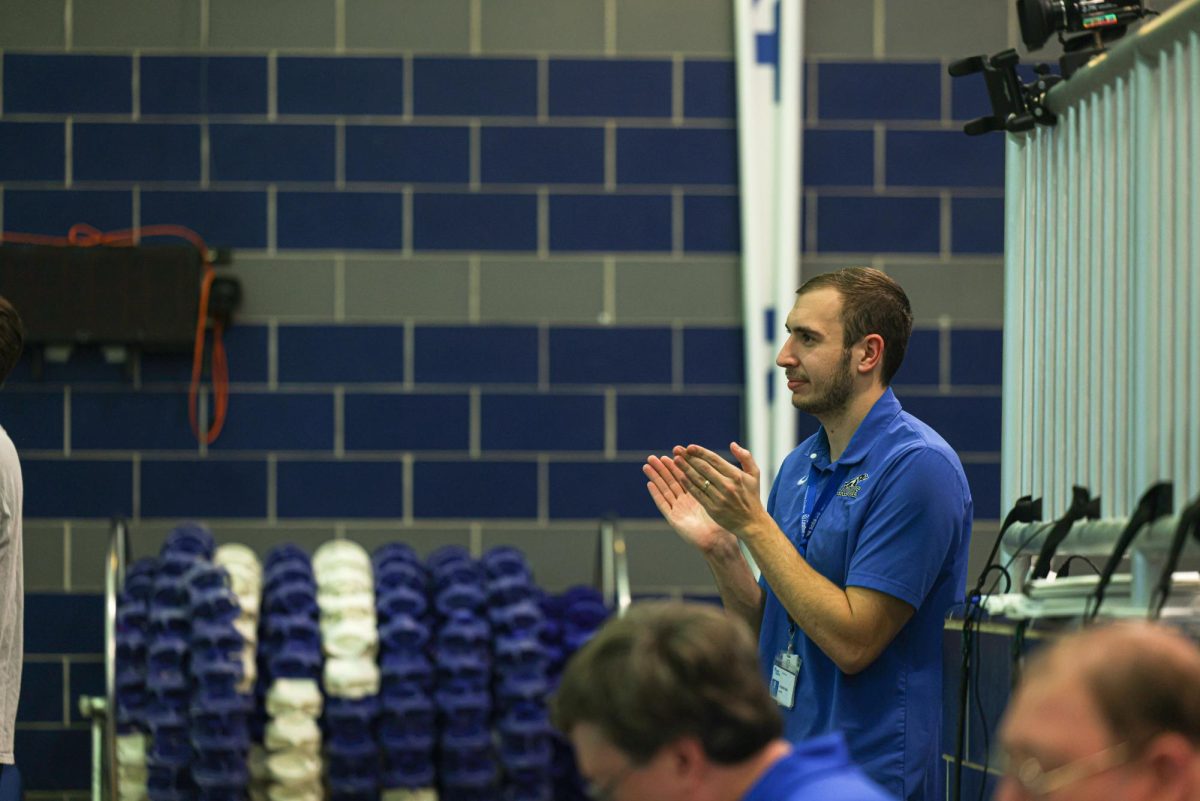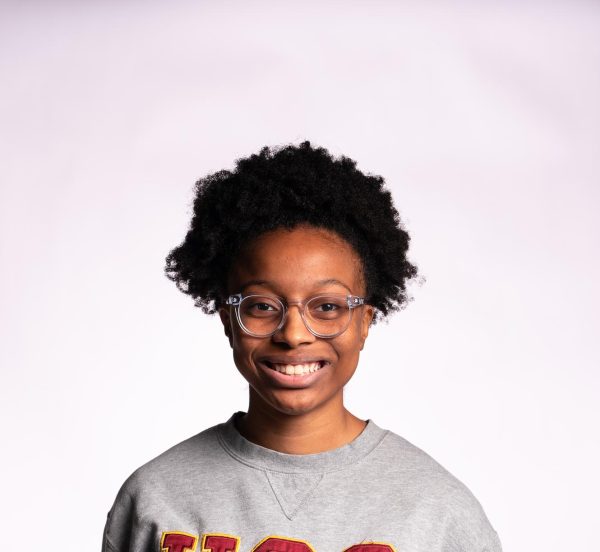“Where are you from?”
…
She takes a deep breath, warming up to tell the complex story of a seemingly simple question.
“I’m usually pretty open about [my life abroad],” freshman Laura Iacone said. “My favorite thing ever is seeing people’s faces when I tell them that I’ve lived in China, South Africa and that I’m Brazilian.”
Laura was born in Pittsburgh, Pennsylvania and lived there until she was 5 years old, then moved to China and lived there for three years. After that, she moved to South Africa, where she remained for four-and-half years before eventually settling in Saint Louis, Missouri, where she hopes to stay for the entirety of her high school career.
“You get to experience so many situations that people who don’t travel around get to do [and] get to see how the other half lives,” Laura said. “Living in Africa, we got to do a lot of community service, which I feel like is so hands-on. Everyone knows about poverty, but when you see it in front of you [and] when you are surrounded by it, it gives you more perspective and helps you become more grateful for everything that you have.”
Each country has its different experiences: the food changes from place to place, the customs too, along with the people. But for Laura, one thing remained constant everywhere she has been.
“By living in both places, I got to experience culture,” Laura said. “There’s so many different communities. It helped me understand people more and get a different perspective and a different view on life and people’s values. And [also] how culture can affect how someone acts or how different cultures do different things compared to what my family would have done.”
Laura’s first few years began in China, where she was surrounded by industrialization and had less of a warm, hospitable community where she could forge long-lasting relationships. But she eventually moved to the nature-filled country of South Africa where the community she longed for thrived.
“I was just really young when we lived in China,” Laura said. W“It was such a great experience that I was super grateful for all the travel that we got to do while we were there. I got to learn Mandarin and it was very fun. But I was just super young, so I didn’t really get to experience everything that I got to experience when I was in Africa. I got to go out more with my friends and I got to expand my friendships more.”
Because of Laura’s father’s job, her family can travel extensively. Renato and his wife, Cibele, started their journey in Brazil and have been traveling since.
“I work in a multinational company,” Renato said. “I started my work in Brazil. That’s where me and Cibele are from. I moved to [the] U.S because of work, then to Pittsburgh. Then from Pittsburgh, we moved to China and then South Africa. Now [we are] back to [the] U.S. in St. Louis, but it’s all about work.”
Renato made sure that Laura was well equipped to handle new environments: learning the customs, finding new activities to partake in and engaging in the community. Learning the language of the new country was an extremely important aspect of life Laura had to master.
“We can take for granted that people understand [us] just because we use the English language,” Renato said. “We can’t take it for granted that people really understand what you mean and what you want. Listening and watching was the key thing.”
Cibele also prioritized her children’s ability to communicate with others. This was to avoid the difficult experiences she had experienced due to her limited ability to speak English while living in America.
“I never studied English,” Cibele said. Our first experience was here in America. For me, it was very hard in the beginning, especially because of the language. When I came to the U.S., I didn’t know how to introduce myself because I didn’t know how to speak the language. Since then, I [have been] studying constantly, so of course now I speak English but I have some pronunciation issues, like accents.”
Laura has learned many languages during her travels around the world.
“I speak Portuguese and English fluently and Spanish, [which] I’m pretty good at,” Laura said. “I’m not fully fluent yet, but I’m working on it. I used to know Mandarin really, really well. But, after we left I didn’t practice it anymore, so I don’t really remember much of it. I was also learning French at one point, but not anymore. So, I speak three languages.”
Laura’s ethnic background provided her an additional connection with more cultures around the world.
“Both of my parents are from Brazil,” Laura said. “So I have Brazilian culture and everything. I got to connect with not just different communities due to the country, but I [also] got to connect with many other Brazilians.”
Even with Laura’s Brazilian heritage, she deeply values her initial roots of where she was born, the U.S. She takes her American culture everywhere she is.
“My brother and I, even though we’re Brazilian, we always [say], ‘No, we’re definitely American,’” Laura said. “We celebrate [the] Fourth of July and St. Patrick’s Day.”
Laura kept her American dreams alive while abroad, going as far as to dream of American schooling.
“One of the things that I’ve always talked to my parents about was wanting to be in the U.S. for high school because I wanted that high school experience,” Laura said. “I [said], ‘Guys, if I don’t get to experience high school in the U.S., I will be running away from home. I will be swimming across the Atlantic Ocean to get there because I need to.’”
Abroad, Laura was a part of private institutions for education due to the lack of proper public education in the places where she lived. But in her private schools she found a community she could feel represented in.
“At my old school in Africa, it was very diverse. There were a lot of people who were just like me, who would move around a lot,” Laura said.
Even though Laura treasures her experiences, she ultimately is uncertain about her future, not knowing exactly what will happen at any given moment.
“Leaving things behind and having to restart every few years was really hard at the beginning,” Laura said. “Especially when I moved from Pittsburgh to China, because I was still so young and I was still super attached to my childhood friends. From China to Africa, I was just mad at my parents all the time, because I didn’t want to have to keep leaving. But when we moved from Africa to here, I was really grateful to be coming back, because it’s tiring to keep moving around all the time.”
Laura isn’t the only person concerned about her circumstances. Her parents also harbored some concerns of their own.
“They were mostly scared about the part of us moving around so often. Having to leave everything and [fearing we wouldn’t] have a home in a sense,” Laura said. “Having places that we’ve been to all over the world and communities around us in so many different places but never having a true foundation except the four of us . But something that they were definitely worried about was recreating friendships again and adjusting again. Because that’s a really big thing to [do, especially] at such a young age.”
Cibele uses her own personal experiences of being an immigrant to guide her children, so they will have a seamless transition.
“We always have problems with diversity,” Cibele said. “Being an immigrant, it’s even more like you need to [act] like you are a guest in that country. We need to respect and be open-minded for every type of diversity, not just language, food or culture. Sometimes the way they eat [and] the way they dress are different [than] the way you do from your original country.”
Even though she moved out of Pittsburgh when she was a toddler she continues to strengthen her bond with the city by returning back to visit.
“I have [the] most attachment to Pittsburgh, just because I was born there, grew up there and made so many friends that I’m still friends with today,” Laura said. “We see each other every Thanksgiving, and I used to go every summer to go visit them. So, we created a non-blood family. [Pittsburgh is the] place that I most identify with. I know that it’ll always be a safe space for me to come back to.”
Having experienced life in different countries growing up might have been a challenge, but for Laura, forming connections with the people she met along the way helped significantly with adjusting from place to place.
“My major concern was to teach them that [relationships] are not temporary, because you will live two to three years in different countries and easily forget about who your friends were,” Renato said. “Because as you introduce new friendships you can end up forgetting about your past. [But] I’m trying to keep relations with their previous friends. So you have to consider keeping the friendships [alive] it doesn’t matter if you are in the U.S. or in St. Louis or in China or in South Africa today. But we have to take advantage of social media platforms.”
Even though family can come in all shapes and sizes, blood or chosen, the bond between a family is only strengthened with connection. Imagine being the new kid on the block. Daunting, right? But imagine being the new kid in a different country — the already daunting task becomes especially grueling, but the assistance of Laura’s family eases this to a more bearable level while simultaneously strengthening the bond between them.
“I got to get so close to my parents, because of them telling me about how they never had these opportunities,” Laura said. “We’re really close. I’m really happy that we have such a good relationship. Because a lot of my friends don’t have close relationships with their parents. I can tell them anything [and I know] that they’ll still support me.
Cibele is more than proud to be able to provide her children with the experiences she could only have dreamed of. Cibele has ultimately been shaped by her experiences abroad being exposed to the different cultures of the world.
“My personal experience during these 16 years living abroad was marvelous because we can learn a lot about diversity,” Cibele said. “We can shape you in the culture you are leaving, understand the others, the differences, the cultural differences, the food, the language, especially the culture because every country has a different culture.”
Cibele’s and Renato’s achievements have given their children, Laura specifically, wings to fly. Their love for travel has integrated themselves into Laura.
“I would tell myself that everything will be okay, and that I was gonna make so many great friends,” Laura said. “And I wouldn’t lose contact with my childhood friends. We’re still best friends and we talk every day. And [also] that I’m going to learn so much in the next few years and then it’s going to be such a valuable experience that I’ll never forget.”

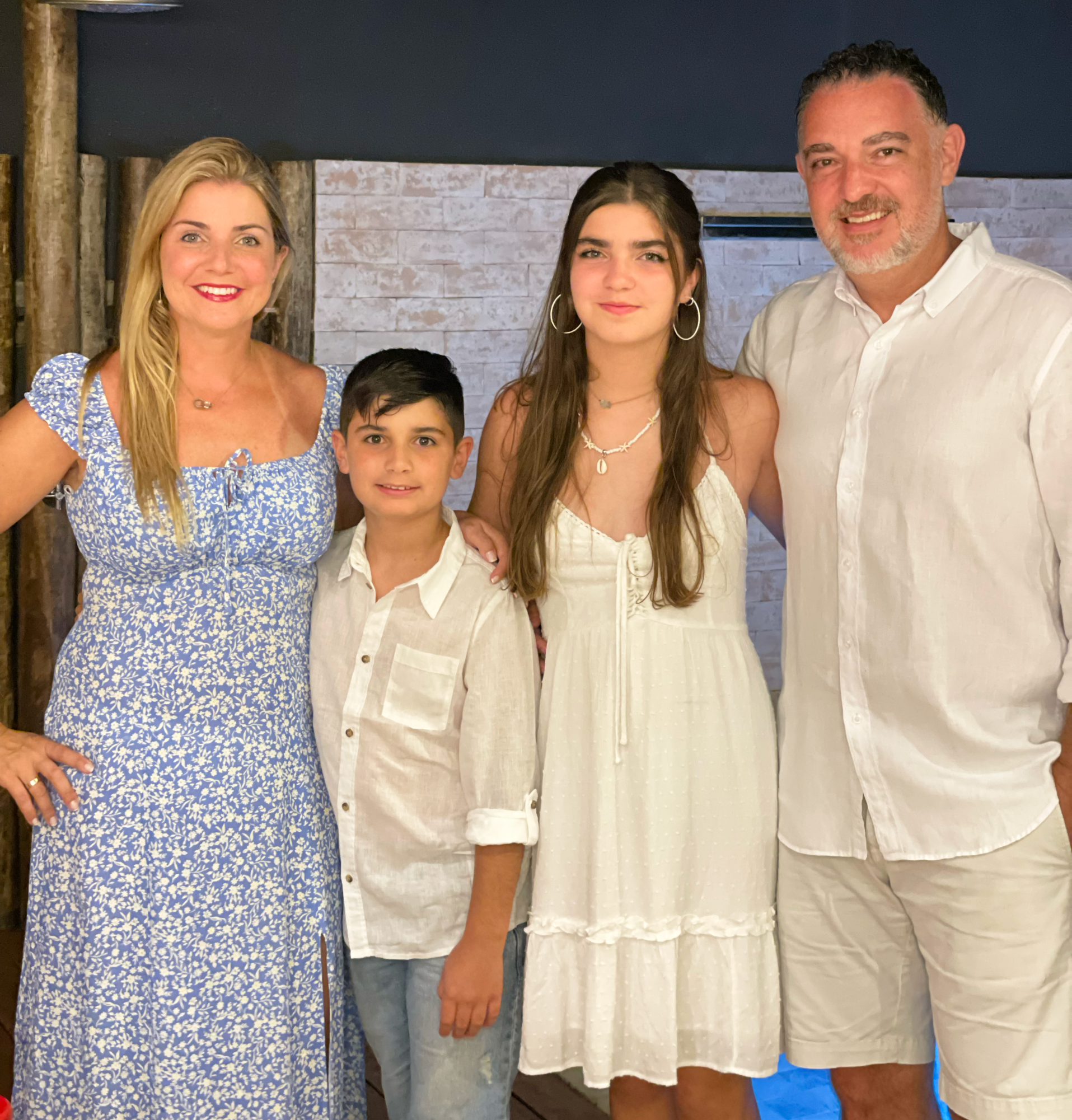

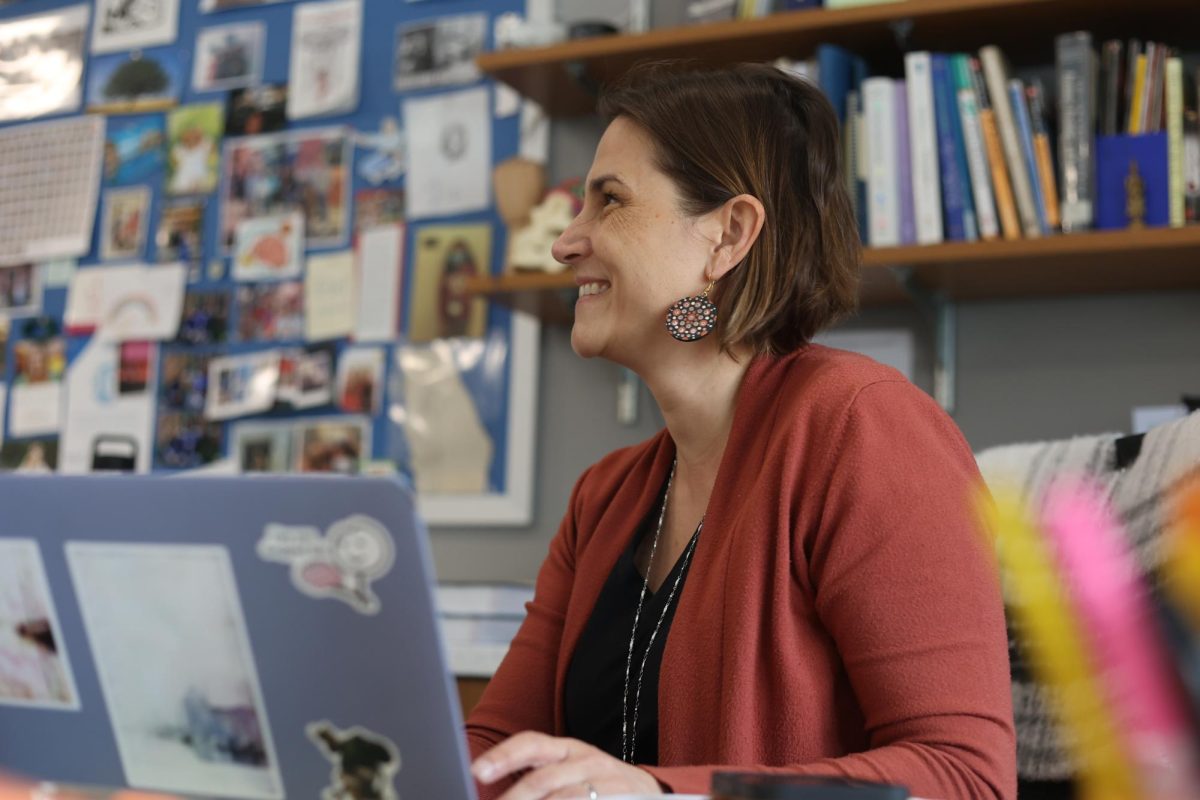
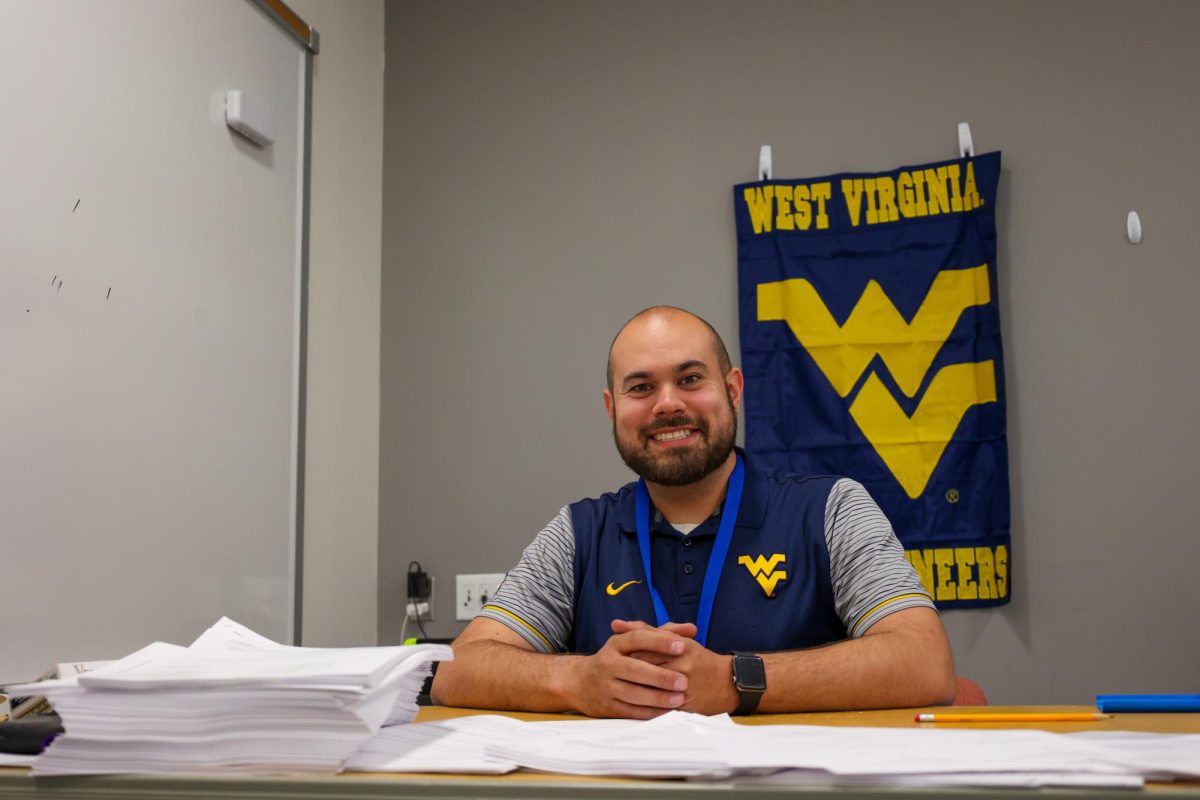
![Junior Phoenix Jegel is embraced by vibrant lights, illuminated in bold colors. Jegels unconventional physical presentation has been a direct reflection of their hard-won autonomy. My life hasnt been the most straightforward, Jegel said. But realizing [that] I dont have to live by other peoples standards has made me recognize who I actually am, even when its uncomfortable for me and those I surround myself with.](https://laduepublications.com/wp-content/uploads/2024/05/7K9A0584-1200x801.jpeg)
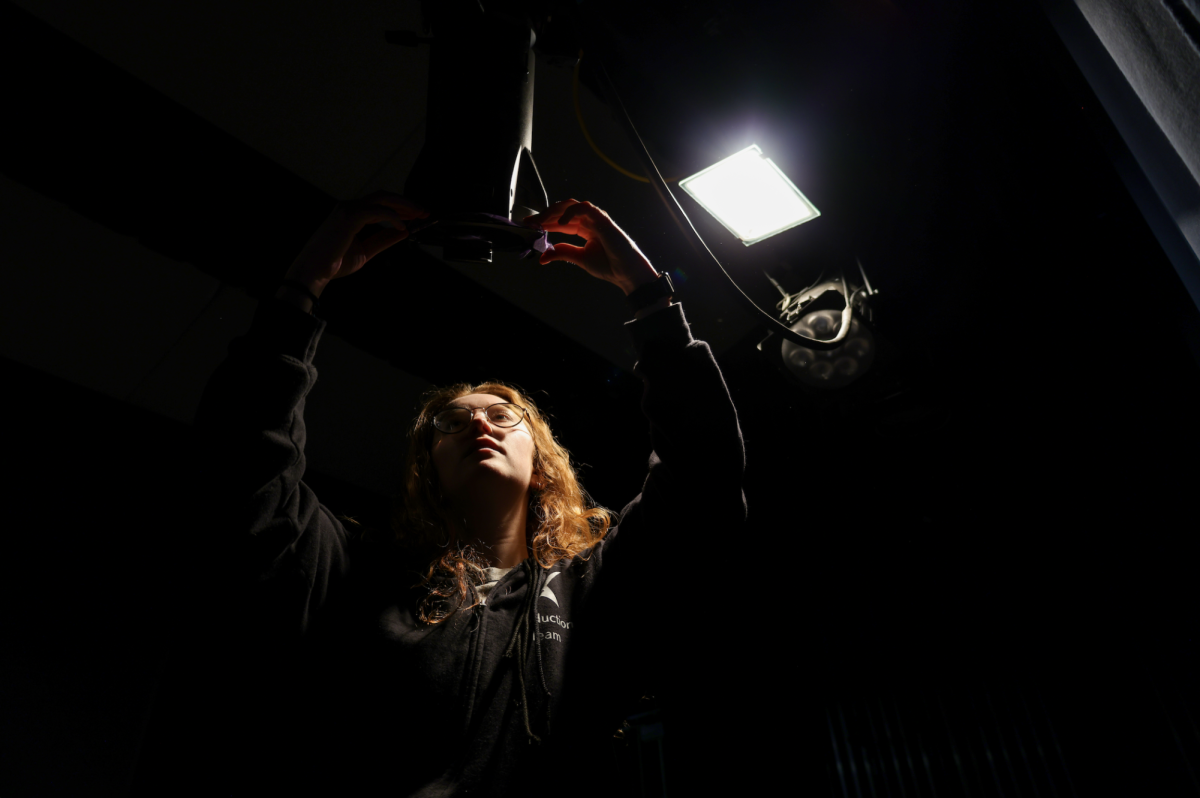
![Sophomore Sahasra Mandalapu practices bharatanatyam choreography in class. These new dances will be performed in an annual show in February. Mandalapu found that practicing in class helped her overcome stage fright during her performances. “When [I] get on stage, Im nervous Im going to forget, even though Ive done it for so long,” Mandalapu said. “Theres still that little bit of stage fright [when] I second-guess myself that I dont know it enough, but I do because Ive been practicing for a whole year.”](https://laduepublications.com/wp-content/uploads/2024/04/Sahasra-6-Large-1200x844.jpeg)
